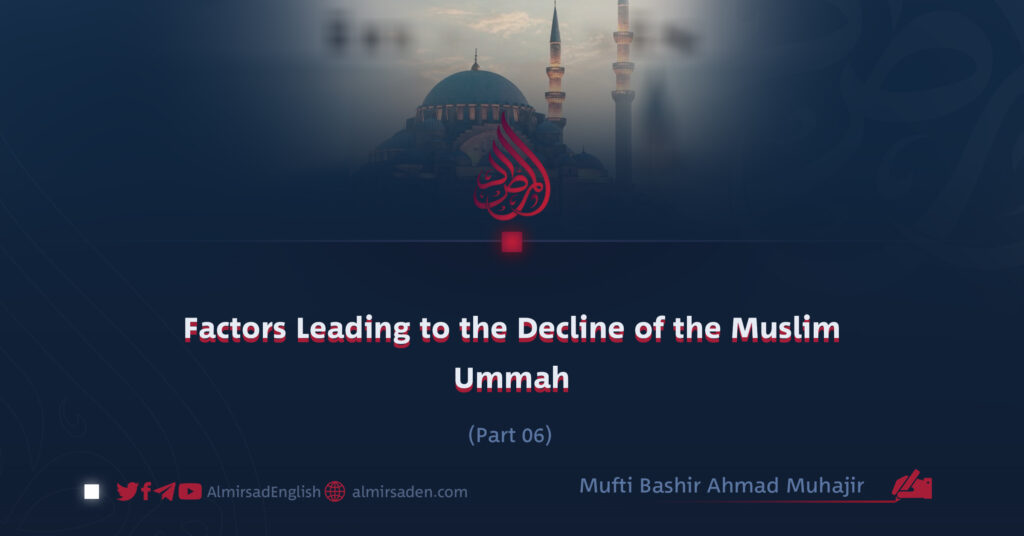Part 6
Mufti Bashir Ahmad Muhajir
Signs of Intellectual Slavery
1. Blind Imitation without Reflection
One of the clearest signs of decline is the uncritical adoption of foreign ideas and ideologies without research, discernment, or knowledge. Such blind imitation weakens the capacity for independent thought and undermines the foundations of a vibrant intellectual life.
2. Disparaging Islamic Culture and Values
A further sign is the devaluation of one’s own religious, cultural, and intellectual heritage while elevating the values of others. This mindset does not only reflect an error in judgment but, in some cases, may even deprive individuals of the blessings of Islam itself.
3. Forgetting History and Civilization
Another form of intellectual slavery is neglecting the great achievements and lessons of Islamic history while considering only the history of others as a standard of progress. Today, for example, Muslims study the violent history of Genghis Khan but often forget the heroes of their own Ummah such as Salahuddin Ayyubi, Tariq ibn Ziyad, and Muhammad bin Qasim. Is this not a grave injustice to Islamic history and civilization?
4. The Consequences of Imitation
When imitation becomes the norm, a people lose their true identity and the ability to chart their own course of progress. This results in stagnation, dependency, and the erosion of self-confidence at both the individual and collective level.
Causes of Intellectual Slavery
1. Educational and Intellectual Weakness
The absence of strong educational foundations and rigorous scholarship prevents the growth of independent thought and creative vision.
2. Colonial Influence
Colonial powers not only occupied lands but also sought to subjugate minds. By weakening cultural confidence and distorting worldviews, they made political and economic domination easier to maintain.
3. Ignorance of One’s Own Values
A lack of understanding of religious and cultural principles leaves societies vulnerable to adopting foreign ideas uncritically. Without awareness of their own heritage, people become detached from their roots.
4. Influence of Media and Propaganda
Modern media often glamorizes foreign cultures and ideologies while portraying Islamic values as backward or insignificant. Accepting this narrative is itself a form of mental enslavement.
Pathways to Intellectual Liberation
1. Advancement of Knowledge and Education
The foremost priority must be to revive education, research, and intellectual development. Establishing independent educational systems that reflect Islamic principles, culture, and values is essential for sustainable progress.
2. Reviving Awareness of Religion and Culture
Greater efforts should be made to promote understanding of Islamic values and to study the rich history of the Muslim Ummah.
3. Cultivation of Independent Islamic Thought
Muslim societies must nurture intellectual traditions that align with Islamic values while fostering creativity and independence. This ensures both authenticity and progress.
4. Educating the New Generation
The youth should be taught the importance of independent thought, the lessons of history, and the value of their identity. Families, communities, and media platforms all play a vital role in shaping this consciousness.
5. Preservation of the Arabic Language
Arabic, as the language of the Qur’an and Islamic scholarship, must be promoted and preserved. Understanding and valuing this language is central to safeguarding Islamic intellectual heritage.
